Questionok so i bought 1 rabbit like a month ago and the same day i went and got another one that was in the same cage as the first one. i brought them home and they were doing well playing and running around together, till i found out one was a boy. then for some strange reason i put them back in their cage together after a long playfully day.
they just started circling each other and then the girl (princess) lunged at the boy (bumper). for no reason they were fine be for i put them in their cage. so i separated them. got them their own cages. so i let them run around on the floor together because i thought the one cage might be too small for them both. so there playing around like before. i took my eye off them for like 1 minute and i looked back and princess had bumper by the front leg with her teeth. fur was flying everywheres, and bumper was crying to be let free. it took me 5 minutes to get princess to let go.
what would cause this behavior and how can i fix it?
oh yeah neither of them are neutered/spayed, they are about 4-5 months old, and thy are dwarf.
is there anything i can do to stop them from fighting?
please help me.
i love them soo much!!
AnswerHi Crystal,
You are experiencing normal rabbit behavior. They rapidly mature and the hormones are starting to build. The "circling" is a sexual and dominance behavior. They are trying to determine which will be the "alpha" in the couple. Basically they are seeing who will be the boss. The fighting can be brutal and should be avoided. Rabbit bites to each other can cause severe infections.
I would keep them apart at this time. I would have them in different cages..but close enough that they can "talk" without fighting. Your male is old enough to impregnate a female. And most females can conceive by six months old. Females are "induced ovulators" which in simple terms means the female will go into "heat" just after a male mounts her. This is nature's way of making sure enough babies are born to keep the food chain intact (in the wild and domestic rabbits were once wild). Since you mentioned a spay and neuter in your question, I am going to assume you do not plan to breed....and if so, I would not allow the female to get pregnant at her young age.
If you do not plan to breed, the male can be neutered as soon as the testicles descend....that is usually about three months old with most breeds....and since he is a dwarf and presenting sexual aggressiveness, I would think he is ready to be neutered now. The quicker you get him neutered, the quicker the hormones will be purged. Males can store sperm and can impregnate a female up to a couple of weeks after neutering.
Spays are a much more invasive surgery and we usually want to wait until they are at least six months old. With them, waiting a while is OK. In some cases their hormones will grow to a point of causing a pseudo-pregnancy....aka false pregnancy....in which her body will think it's pregnant. Spaying will also eliminate the possibility of developing endometriosis and/or uterine cancer. Make sure the spay is done by two years old. We normally shoot for eight months old for spays.
A word of caution....not all vets can properly treat rabbits. Treating rabbits is much different than dogs or cats. When the time comes for the surgeries, I can provide you with a list of questions to go over with your vet prior to scheduling surgery. If a vet is uncomfortable in answering these questions, I would find another vet. Plus there are several things like removing food (never remove food from a rabbit....we have seen rabbits eating hay on the way to surgery) and post-op pain meds that should be decided before the surgery.
Rabbits usually have to go thru a "bonding" process....we call it "supervised dating". They identify each other by scent. Since the scent will be altered after spaying/neutering...I would not attempt to bond them until after the surgeries. I would wait at least two weeks after the spay to start the bonding process. When introduced and bonded properly, it usually results in a very tight and life long relationship. When the time comes to bond your pair after their surgeries, we have some very advanced protocols that are very successful and I will be glad to share them with you.

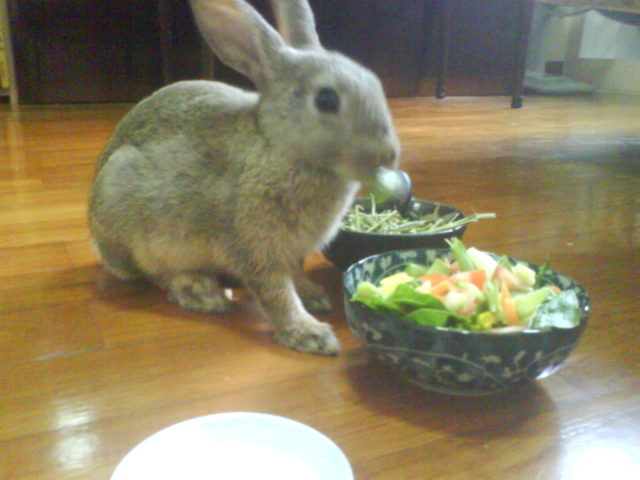 Binky and then pees
Question
My Rabbit
Dear Expert,
my rabbit (recently ad
Binky and then pees
Question
My Rabbit
Dear Expert,
my rabbit (recently ad
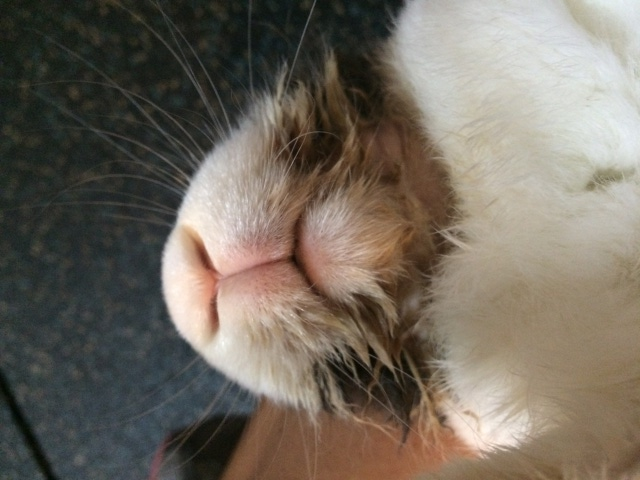 elderly rabbit and chin hair loss/goopy mess
QuestionBunnys chin
QUESTION: My bunny is 9 year
elderly rabbit and chin hair loss/goopy mess
QuestionBunnys chin
QUESTION: My bunny is 9 year
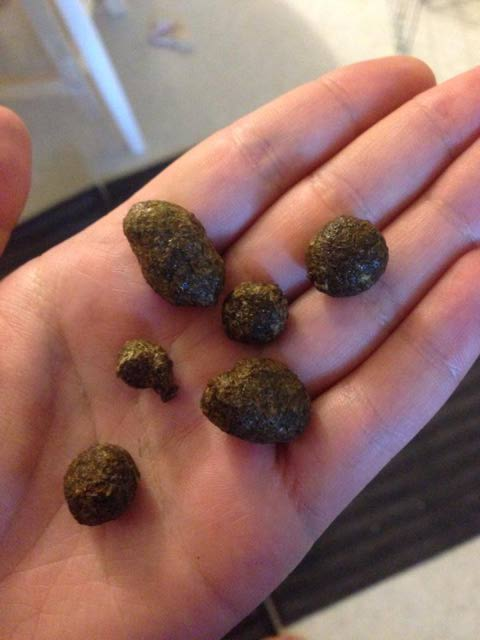 Young rabbits irregular poops
QuestionPoops
QUESTION: Hello!
Im stumped. My ne
Young rabbits irregular poops
QuestionPoops
QUESTION: Hello!
Im stumped. My ne
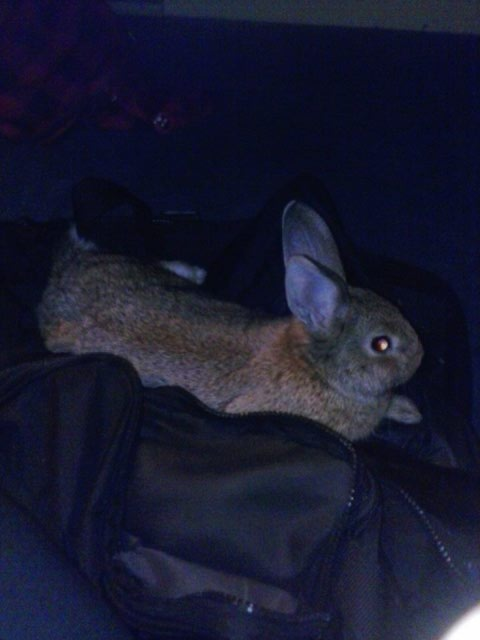 Help!
QuestionQUESTION: I have a six month old rabbit of an u
Help!
QuestionQUESTION: I have a six month old rabbit of an u
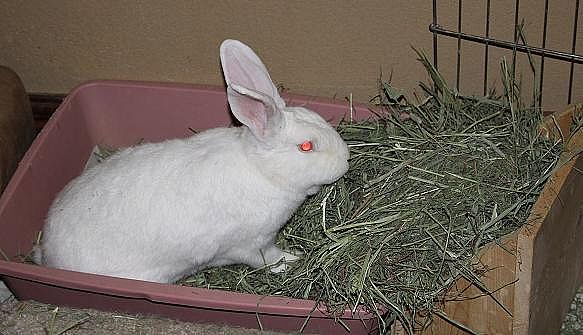 reply
Questionpregnant rabbit like s
QUESTION: she eat
reply
Questionpregnant rabbit like s
QUESTION: she eat